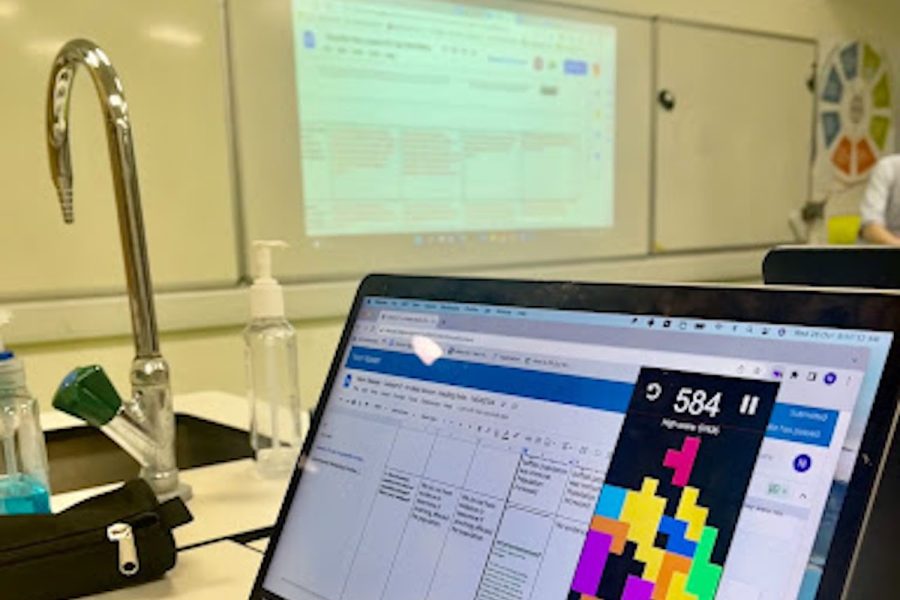It was nearing 11 p.m. and I was still trying to understand how to do my math homework due the next day. During the last class, I impulsively decided to fill the remaining minutes of class by playing Tetris. Sometime during that intense game, I recall hearing the instructions for my assignment. What was it my teacher said again?
Most students have the Tetris browser extension on their laptops or have seen fellow classmates engrossed in it. Tetris has a straightforward objective – players must keep blocks that fall from the top of their screen from piling up. Tetris is played to fill time and relieve boredom in class. Yet, when we click on the purple block icon in our extension bar, we ignore the repercussions of this popular puzzle game that consumes our attention.
Multitasking is the act of doing or focusing on multiple tasks at once, but how can one really focus on one thing if busy with another?
Thus, if students separate Tetris from school, they are bound to experience an increase in efficiency from having a clearer mind and getting distracted less.
It is nearly impossible for our brains to focus on numerous tasks at a time. According to Cleveland Clinic, only 2.5% of individuals can successfully multitask. Like most of the world, and probably like you, I am not a part of the 2.5%. For example, when I am on my phone, I am a terrible listener. I find it impossible to digest information – let alone respond to people – while staring at a screen.
Task-switching can easily tire us out. Daniel Levitin, a University professor of behavioral neuroscience at McGill, says that multitasking exhausts our brain much faster than monotasking. Classwork requires a higher level of concentration than games such as Tetris. Therefore, doing both puts students at greater risk of mental fatigue.
Multitasking reduces productivity by 40%, according to the American Psychological Association. Thus, if students separate Tetris from school, they are bound to experience an increase in efficiency from having a clearer mind and getting distracted less.
While Tetris is an entertaining and easily accessible game, there is an underlying reason as to why it is so popular among high school students: releasing stress.
In fact, according to NPR, Tetris releases anxiety; the simple problem-solving nature of the game makes it therapeutic. High school can undoubtedly cause stress, so it is understandable that students might need a break from class or a surrogate reward system for their work.
High school can undoubtedly cause stress, so it is understandable that students might need a break from class or a surrogate reward system for their work.
Nonetheless, Tetris players must understand that although playing the game provides a short-term feeling of comfort, the long-term impacts multitasking has on school performance are not reposed.
In the long run, students will become unproductive and take longer to complete work. Missed deadlines, awkward meetings with teachers and exhausting late-night catch-ups aren’t fun, nor good for your Tetris high score.
Students must stop ignoring the consequences of playing multitasking Tetris. We must have a degree of self-control during class and working at home, such as closing laptops during lectures and disabling Tetris from the Chrome bar to limit temptation. Ultimately, a video game should not be the reason you do poorly in school, and it will not be if you make the active choice to focus.







ruby • May 17, 2023 at 1:19 pm
real
Justin • Apr 28, 2023 at 12:55 pm
very good. I think this an important piece of information that I learned today.